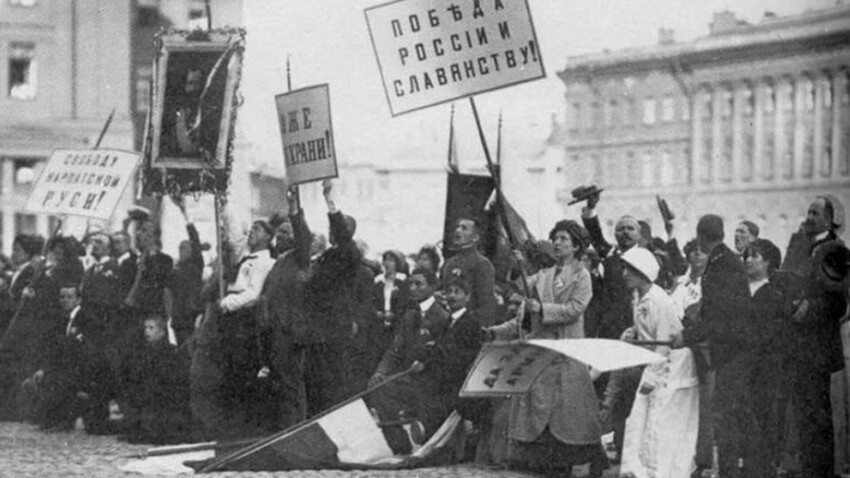
People demonstrating in St. Petersburg upon the outbreak of World War I, 1914.
Public DomainRussian society met the outbreak of World War I with great enthusiasm - everyone was confident of an imminent victory. The Czechs living in the empire also rejoiced.
The Czech community in Russia numbered about 50,000 people. These were mainly subjects of the Austro-Hungarian monarchy, who loved Russia with all their souls, dreamed of its triumph, the fall of the Habsburgs and the independence of their historical homeland.
It was the Czechs who took the initiative to rename St. Petersburg: "It’s time to correct the mistake of our ancestors, it’s time to throw off the last shadow of German tutelage. We, the Czechs, ask the public administration of our capital to submit a petition to the Highest Name for the approval and mandatory use of the Russian name ‘Petrograd’ from now on!"
Unexpectedly for many, the authorities heard this appeal. On August 31, 1914, Emperor Nicholas II signed the highest order to rename St. Petersburg to Petrograd.
The city bore this name until January 26, 1924, when the Bolsheviks renamed it Leningrad in honor of the Soviet leader who died on January 21 of the same year.
If using any of Russia Beyond's content, partly or in full, always provide an active hyperlink to the original material.
Subscribe
to our newsletter!
Get the week's best stories straight to your inbox